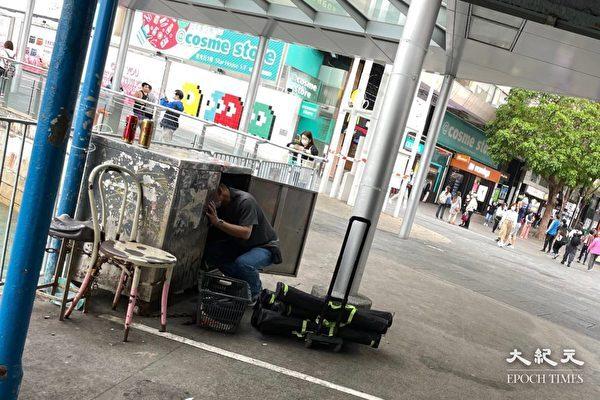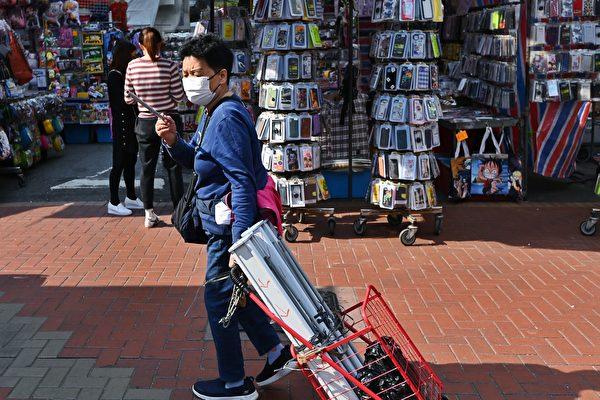Poster displays that slander the spiritual practice Falun Gong have emerged in some parts of Hong Kong in the past few weeks. Local Falun Gong adherents believe that an agency with direct ties to the Chinese regime has continued to target the practice.
The Chinese-language Epoch Times spoke to one local resident whose job was to set up anti-Falun Gong poster displays and she admitted to taking direct orders from Chinese authorities. Local lawmakers have expressed concern about the recent incidents.
Resumed Harassment
Recent evidence reveals that the HKYCA, which formally dissolved at the end of 2020, has resumed its harassment against Falun Gong.Since HKYCA was established, it has targeted Falun Gong adherents and interfered with their activities in downtown Hong Kong.
Since March 6, an array of unattended poster displays that slandered Falun Gong and its founder were found near Falun Gong information booths in Mong Kok, Tsim Sha Tsui, Causeway Bay, and Wan Chai, according to a local female Falun Gong practitioner surnamed Zhou.
“Those posters are full of lies, which are exactly in line with over two decades of the CCP’s defamation propaganda [against our belief],” Zhou told the Chinese-language Epoch Times.
The content on the displays is in simplified Chinese characters—the style that is mostly used in mainland China.
A man was spotted taking out poster displays from a steel cabinet that had been bound to a pier in Tsim Sha Tsui and belonged to the HKYCA, according to an anonymous local Falun Gong practitioner.
Poster Displays
On March 25, Zhou and a reporter from the Chinese-language Epoch Times went to Mong Kok to check out the anti-Falun Gong poster displays.Around 3 p.m. that day, an elderly woman in a blue sweater showed up around the junction of Fa Yuen Street and Nelson Street and began to set up the poster displays. She had a small cart containing more than 10 posters. Meanwhile, a man in a white T-shirt was taking a video of the woman on his cellphone.
The woman worked quickly. When the job was done, she walked to the next location, Argyle Street, and set up three posters.
When the old woman went back to her cart to get more posters, Zhou approached her and told her not to put up materials that slander Falun Gong. The woman got nervous and the man began recording the conversation.
When asked again, she replied, “The CCP. … The Shenzhen branch of the CCP.” But she did not reveal the specific CCP department that gave her direct orders.
The elderly woman said, “I'll have to upload [my videoed work] every day. Everyday.”
The reporter inquired if she was a CCP member or a local member of the CCP’s Shenzhen branch. The woman refused to answer the question.
When asked how much money she was being paid to do the job, the woman reacted negatively and said, “Don’t ask me about that! … I don’t use the money.” She also denied producing the materials.
The man came up to the old woman and called her “mom.”
When the reporter asked if the CCP’s Shenzhen branch was against Falun Gong, the old woman admitted that she was carrying out the CCP’s orders. The man averted the topic and told the reporter to report the incident to the police if she thought the materials were offensive.
The woman set up a total of 18 poster displays that day—three of them were tied to the sidewalk handrails with ropes.

After his visit to Mong Kok on March 25, Legislative Council (LegCo) member Chu Kong Wai told The Epoch Times that he received complaints from neighborhoods about unattended poster displays vilifying Falun Gong. He said any citizen can take a photo of them and report it to the Food and Environment Hygiene Department (FEHD).
“The FEHD will remove them under Hong Kong’s existing system,” he said.
Chu believes the emergence of the poster displays at multiple locations is an organized act.
Possible Rule Violations
Lo Chun-Yu, LegCo member in the district of Tuen Mun, told The Epoch Times that he also noticed the re-emergence of anti-Falun Gong posters in the streets. Some of the contents incite community violence, he said.“We must condemn those individuals who place such displays and those organizations which send out such vicious remarks,” he stressed.
“The HKYCA is using a different way of continuing its harassment against Falun Gong,” Lo said.
“First of all, unattended poster displays are against the FEHD rules; they involve criminal risks of affecting street traffic,” the lawmaker noted.
“The harsher the CCP’s crackdown, the braver we'll be,” said Lo. “I believe neither Falun Gong nor [Hong Kong] pro-democracy activists would be intimidated.”
Lo also expressed his admiration to Falun Gong practitioners who have endured 22 years of the CCP’s persecution.
“[I] particularly appreciate the endurance of core values in Falun Gong. … I’m convinced Falun Gong will certainly continue to bring light to our society.”
Falun Gong practitioner Zhou asks all residents to call the FEHD if they see any anti-Falun Gong poster displays.
“Please help end the CCP from spreading poison among Hong Kong citizens,” she said.





